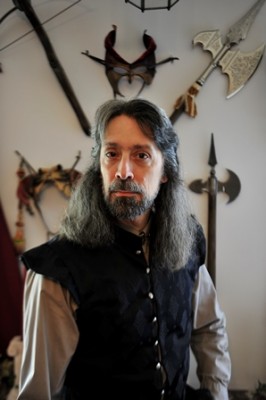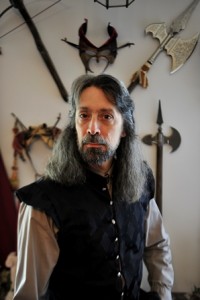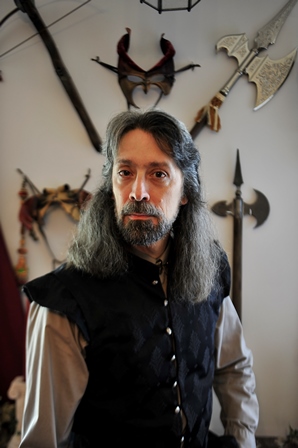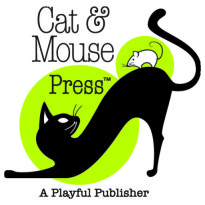Epic Fantasy World-Building

Guest Post on Epic Fantasy World-Building

Epic Fantasy World-Building: The Tale You Can Never Tell
by Will Hahn
I stayed away from fantasy writing for many years because I could see what a colossal job world-building was going to be, and honestly saw no place to begin. Everything must be explained in detail or the reader has no reference (and can lose interest). Why do you care about the characters? Because you sympathize with their plight. And there’s really no middle ground: you can either tell a short fairy tale with characters like “noble prince” or “evil witch”, or dive in and really show us where their emotions come from, why they decided as they did. The latter takes a long time.
The problem is that no one appreciates world-building. Like students in middle school, as soon as readers understand they are being taught, the sighs come out.
World-building, I always say, is like a flu shot: you need to give it, but don’t hold your breath waiting for the patients to thank you. What’s a doctor to do? Assure them it won’t take long, won’t hurt much, tell a joke to distract them, and then try to slip it in at the right (the least bad) moment. I believe this is largely the skill of the epic fantasy author, especially today when the “Patience Horizon” of readers has never been shorter (thank God Tolkien didn’t have TV to compete with, or he might never have been published).
So what are the ways to build that world you see for your readers, without turning them off? Opinions will differ, but here are the guidelines I’ve been using:
- Always have something else going on. When the preacher Alaetar gave the children of Trainertown a lesson in astrology, there were important clues there foreshadowing future events in my series Judgement’s Tale. But the children were really worried that their custom of sitting outside at night was going to end—and that Alaetar would be the one responsible for ending it! As he teaches them, they discover that they like him, and he is astonished to find he enjoys teaching.
- Do not neglect shorter forms of writing simply because the world is old and large, with lots to be said. Don’t put off the world-building, but do practice restraint. What part of the history, mythology, and zoology of the land needs to be brought out now, what is the character actually confronting and thinking about? Giving the reader just enough to carry on, and hinting that there’s more (there’s always more!) can be enticing. A series of novellas on a common theme or event can accomplish this very nicely. In my series Shards of Light, the captain needs to know about military history; the stealthic is interested only in the society of his city; the priestess has her eyes on the political struggle and a great lost artefact. Each is tackling the problem of a conspiracy against the Empire in their own way, and to start the tale they haven’t even met.
- Take notes on your world, and never lose them. That’s what I did for the 25+ years of my life that came between seeing and chronicling. It doesn’t matter whether the life-cycle of dragons will impact your current tale (perhaps they’ve all died out, as many folk in the Lands of Hope believe). The point is that you know it, and some of your characters know it. Tales of dragon-fights long ago, perhaps not long enough for a standalone novella, are still the sort of thing these characters tell each other. Perhaps just one stanza (in a poem or song) will have meaning for heroes facing a test of peril. Meanwhile, the notes themselves can help the truly dedicated fans of your work. I have a Compendium of the Lands freely available on my website and add to it periodically, with just this kind of historical detail. After all, doesn’t the Alleged Real World have encyclopedias? This is all part of your web presence and platform.
Above all, don’t give up! It’s an entire world out there. Can you imagine some alien race spending years studying our planet and coming back with just the TV Guide? Whether you’re building a tale or only studying your world for now, stick to your guns. Epic fantasy is a long-form of writing, with peculiar joys and satisfactions for the author willing to put in the time. Your characters are just as good as any other genre’s; let this world know about yours.
Here is a wonderful article by Natasha Pulley explaining why G.R.R. Martin’s stuff is so big, and why the phrase “fantasy short story” is nearly a contradiction in terms.
LINKS
Will’s Weirdly Whimsical Website is where he posts news about upcoming releases and blogs about writing, classic fantasy works you’ve never read and the unique photo-based series “It Figures”.
The Lands of Hope Facebook page contains a chronology of the Lands.
Will’s Tales of Hope are available at many online retailers:
Will Hahn was born in Vermont to a family of five sisters. He survived both, and now chronicles events happening in an epic fantasy world called the Lands of Hope. Will wears as much grey as possible as often as he can.









